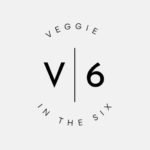Your cart is currently empty!

In the quest for beauty and self-expression, a growing number of consumers are turning their attention towards cruelty-free makeup brands, seeking vegan products that align with their ethical values without compromising on quality.
The journey towards a kinder beauty routine can be complex, with questions like “Is Cerave cruelty free?” or “Is Maybelline cruelty free?” surfacing frequently in beauty communities.
In this comprehensive guide, we’ll delve into the world of cruelty-free beauty, spotlighting brands committed to ethics as much as excellence and highlighting the essence of vegan makeup.
Is Your Favourite Brand Cruelty-Free?
The term “cruelty-free” refers to products that are not tested on animals at any point during their production process.
However, determining whether a brand is genuinely cruelty-free can be challenging due to varying certifications and definitions.
Let’s address the burning question on everyone’s mind about the cruelty-free status of some well-known brands:
- Is CeraVe Cruelty-Free? CeraVe, a favorite among dermatologists for its gentle skincare formulas, unfortunately, does not qualify as a cruelty-free brand. The brand’s products are sold in mainland China, where animal testing is required by law for foreign cosmetics.
- Is Maybelline Cruelty-Free? Maybelline, a global makeup giant, is also not cruelty-free. As part of L’Oréal, Maybelline’s products are subject to animal testing where required by law, particularly in markets like China.
- Is Neutrogena Cruelty-Free? Neutrogena, known for its extensive skincare and makeup lines, does not meet the criteria for being cruelty-free. The brand conducts animal testing where required by legislation.
- Is Laneige Cruelty-Free? Laneige, a South Korean beauty brand celebrated for its innovative skincare products, does not currently hold a cruelty-free certification. This means that their products may be tested on animals, especially in regions with strict testing laws.
- Is e.l.f. Cruelty-Free? In a refreshing contrast, e.l.f. Cosmetics stands out as a proudly cruelty-free brand. e.l.f. has earned certifications from PETA, confirming that they do not test their products on animals at any stage of production.
- Is Aveeno Cruelty-Free? Aveeno, widely recognized for its natural ingredient-based skincare products, is not cruelty-free. The brand’s products are available in markets where animal testing is required by law.

The Intersection of Cruelty Free and Vegan Makeup
While cruelty-free certification is crucial for many, the distinction between cruelty-free and vegan products often blurs. Cruelty-free signifies the absence of animal testing, but it doesn’t automatically mean a product is vegan. Vegan makeup goes a step further, excluding all animal-derived ingredients from its formulations, aligning with both ethical and environmental values.
Cruelty-Free is not always Vegan Makeup
Cruelty-free and vegan makeup serve different ethical and health considerations in the cosmetics industry.
Cruelty-free makeup refers to products not tested on animals at any point during their production process. This ensures that no animals were harmed or subjected to inhumane treatment for the sake of beauty products.
On the other hand, vegan makeup means that the product contains no animal-derived ingredients or by-products, catering to those looking to avoid all forms of animal exploitation in their consumption habits.
Buying makeup that is both cruelty-free and vegan represents the best of both worlds for ethical consumers.
This combination ensures that your beauty products have not contributed to animal suffering in any form—neither through testing practices nor by utilizing animal by-products.
This dual approach aligns with a broader ethical lifestyle, promoting animal welfare and reducing the environmental impact associated with animal farming and testing.
It caters to an increasing demand for transparency and ethical responsibility from beauty brands, reflecting a shift towards more sustainable and humane practices in the cosmetics industry.
Choosing products that are both cruelty-free and vegan supports this movement, encouraging more companies to adopt ethical practices.
The Rise of Cruelty-Free Makeup Brands
The rise in cruelty-free makeup shows growing consumer awareness about the environmental and ethical impacts of their purchasing choices.
With increased legislation worldwide against animal testing, the demand for cruelty-free cosmetics has seen significant growth.
For instance, the introduction of laws like the Cruelty-Free Cosmetics Act in California, which prohibits the sale of cosmetics tested on animals after January 1, 2020, has spurred market growth.
Moreover, the EU’s ban on animal-tested cosmetics has been a major driver in the industry, influencing other countries to adopt similar measures .
The global cruelty-free cosmetics market has been expanding, driven by the rising demand for products that do not harm animals in any way. This is also coupled with a heightened inclination towards organic and natural skincare products.
The market is expected to reach USD 14.23 billion, highlighting the substantial consumer shift towards more ethical and sustainable beauty choices.
However, there are some serious challenges such as the widespread availability of counterfeit products and difficulties in procuring organic ingredients, which could hamper growth to some extent.

Counterfeit products not only pose a threat to brand integrity but also to consumer safety, as they may contain harmful substances not found in genuine cruelty-free products.
In terms of market segmentation, North America leads in cruelty-free cosmetics due to innovative product launches and a growing preference for veganism.
The region’s market dominance is further supported by stringent regulations against animal testing.
Europe and Asia-Pacific also show strong market performance, driven by consumer demand for natural and organic products, as well as legal frameworks that encourage the development of cruelty-free cosmetics .
The expansion of online retail has also played a crucial role in the market’s growth, offering consumers a wider range of cruelty-free options alongside attractive discounts and convenience.
This trend underscores the evolving landscape of the beauty industry towards more ethical and environmentally conscious products.
Navigating the world of cruelty-free and vegan makeup can be daunting, but the effort is a testament to a growing collective consciousness around ethical consumerism.
By choosing brands that do not test on animals and opting for vegan formulations, we can all contribute to a kinder, more sustainable beauty industry.

Leave a Reply